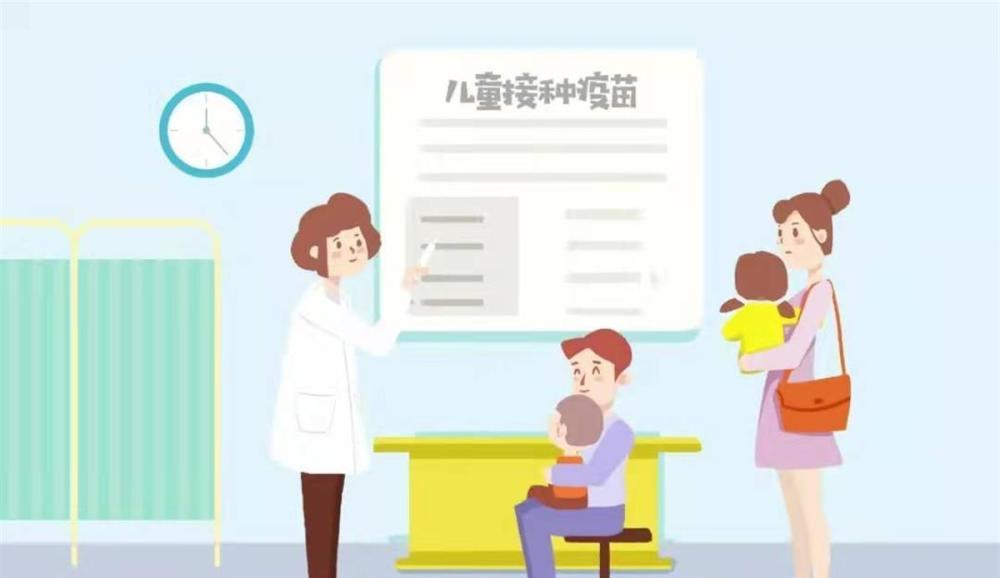Jimu news reporter Yin Jie
Within 24 hours after the baby is born, the first dose of BCG vaccine and hepatitis B vaccine will be given, when the mother and baby are still in the hospital, there is the care of medical staff, and the family does not have to worry too much. What really needs to be prepared is to go to the community for the first time after discharge, the first time to take the baby to get vaccinated, many new parents are not clear about the operation process. In this regard, Li Minghui, head nurse of the pediatric protection department of Hubei Provincial Maternal and Child Health Hospital, made a detailed introduction.

Parents are required to sign an informed consent form
Before vaccination, the medical staff will examine the baby's physical assessment, establish an electronic file, parents need to sign an informed consent form, "before signing must understand the basic vaccine knowledge, vaccination precautions, etc., in advance to inform the child's physical condition, in order to assess whether it can be vaccinated." "After the vaccination is completed, stay for half an hour and make an appointment for the next vaccination to learn about the child's entire vaccination schedule."
How to choose between free vaccines and self-funded vaccines
When vaccinating their babies, almost all parents will face a choice: free and self-funded, adding up to more than 20 vaccines, which must be given and which can not be shot?
Speaking of this, we must first understand the mainland's vaccine management law. Vaccines are divided into two types: immunization programme vaccines and non-immunization programme vaccines, commonly known as first-class vaccines and second-class vaccines, the former is free and the latter is self-funded. The two are not static, and as national programmes adjust, more non-immunization vaccines will gradually become immunization programmes.
Specific to individual choices, it is decided according to the child's physical condition and vaccine characteristics. For example, when your child gets the second dose of the hepatitis B vaccine at the full moon, he or she must make an appointment for a month and a half later for the pneumococcal conjugate vaccine and the pentavalent rotavirus vaccine, both of which are non-immune vaccines. Do you want to fight? Parents must first understand the characteristics of vaccines and the harm of these diseases before making judgments. Take pneumococcal disease as an example, this is a serious disease caused by pneumococcus, once the child is infected with pneumococcal bacteria, it may cause not only pneumonia, but also meningitis, sepsis, lobaritis media, etc., so it is listed by the World Health Organization as a disease that needs to be highly prioritized for prevention, and after the disease and vaccine are recognized, parents can make a judgment.
Plan ahead to be informed
When it comes to disease prevention, some parents will wonder: the newborn baby, from birth to months has been staying at home, the risk of contracting the disease is not much!
This is not the case, such as the characteristics of pneumococcal, is living in the human nasopharynx, usually do not occur, the resistance declines when the infection will occur, although the baby does not go out, but adults will carry germs, spread to the air will be inhaled by the baby. Newborn babies still have maternal antibodies, but after 6 months, the maternal antibodies disappear and the bacteria accumulate to a certain extent, and the child is prone to illness.
Is it too early to start vaccinating against pneumococcal conjugates from week 6? In fact, after the baby is born, the nasopharynx will carry pneumococcal bacteria. Authoritative data show that the pneumococcal carrying rate of 2-month-old babies is 10%, and it is in a rapidly rising state after 2 months, so the earlier the vaccination, the better the baby can get.
In real life, after many babies are born, parents are busy and can easily miss the vaccination time. To this end, it is recommended that all new parents: make an appointment in advance, have a good idea, and vaccinate on time.
How to grasp the timing of multiple doses of vaccine
Vaccination of vaccines in non-immunization programmes shall be subject to the procedures recommended in the instructions. Taking the pneumococcal conjugate vaccine as an example, the first dose is recommended to be given at 6 weeks of age, complete the basic 3 doses before 6 months of age, and receive another dose between the ages of 12 months and 15 months. This is the "3 +1" procedure summarized by the vaccination doctor, 3 refers to the 3 stitches of basic immunity, 1 is the strengthening needle at the age of one, as long as you keep in mind the "3 + 1", the time node is easy to grasp.
How to deal with the reaction after vaccination
After the child returns home from the vaccine, if there is a local reaction, such as surface redness and swelling, induration, parents should master the basic treatment methods: redness and swelling can be used with a towel or cold water to compress the blood vessels, reduce redness and pain. After the redness and swelling subside, induration appears, and warm compresses can be applied with warm water for 15 minutes at a time, two to three times a day. If there is a transient fever, parents do not have to worry too much, generally a day or two has passed. If the fever exceeds 38.5 degrees, you should use antipyretic drugs or go to the hospital.